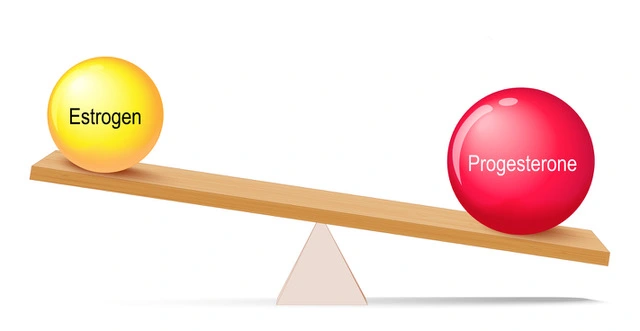
Introduction
Hormonal balance is essential for overall well-being, particularly for women. Estrogen and progesterone play crucial roles in regulating the menstrual cycle, mood, metabolism, and reproductive health. An imbalance in these hormones can lead to symptoms like weight gain, mood swings, irregular periods, and fatigue. Fortunately, diet plays a significant role in maintaining hormonal equilibrium. This article explores the best dietary strategies to naturally balance estrogen and progesterone levels.
Foods That Support Hormonal Balance
1. Phytoestrogen-Rich Foods
Phytoestrogens are plant compounds that mimic estrogen in the body, helping to maintain balanced levels.
- Flaxseeds: Contain lignans, which help regulate estrogen metabolism.
- Soy Products: Such as tofu, tempeh, and edamame provide natural plant estrogens.
- Sesame Seeds: Support estrogen levels with beneficial phytoestrogens.
2. Healthy Fats
Healthy fats are essential for hormone production and overall balance.
- Avocados: Rich in monounsaturated fats that support hormone synthesis.
- Olive Oil: Contains anti-inflammatory properties beneficial for hormonal health.
- Nuts and Seeds: Almonds, walnuts, and chia seeds provide omega-3 fatty acids to regulate hormone levels.
3. Cruciferous Vegetables
These vegetables help the liver metabolize and eliminate excess estrogen.
- Broccoli
- Cauliflower
- Brussels Sprouts
- Kale
4. Protein Sources
Adequate protein intake is crucial for hormone production and cell repair.
- Eggs
- Lean Meats (chicken, turkey, and fish)
- Legumes (lentils and chickpeas)
5. Fiber-Rich Foods
Fiber helps remove excess hormones from the body and supports digestion.
- Whole Grains: Brown rice, quinoa, and oats.
- Fruits: Apples, berries, and pears.
- Vegetables: Carrots, beets, and leafy greens.
Foods to Avoid
Certain foods can disrupt hormonal balance and should be limited.
- Processed Foods: High in unhealthy fats and preservatives.
- Refined Sugar: Can cause insulin spikes, affecting hormone levels.
- Alcohol and Caffeine: Can interfere with hormone metabolism.
- Dairy Products: May contribute to estrogen dominance in some individuals.
Lifestyle Tips for Hormonal Balance
1. Hydration
Drink plenty of water to support digestion and hormone regulation.
2. Stress Management
Practice yoga, meditation, and deep breathing exercises to reduce stress-related hormone imbalances.
3. Regular Exercise
Engage in moderate physical activity like walking, strength training, and yoga to improve hormonal function.
4. Quality Sleep
Prioritize 7-9 hours of restful sleep to support proper hormone production.
Conclusion
Balancing estrogen and progesterone through diet is a natural and effective way to support overall health. By incorporating nutrient-rich foods, avoiding hormone-disrupting ingredients, and adopting a healthy lifestyle, you can promote optimal hormonal function. If you experience persistent hormonal imbalances, consult a healthcare professional for personalized guidance.

